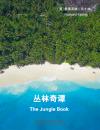Final book review
Before the winter vacation, I was secretly pleased because my homework was only to read a book and write a book review.Over the years, there were so many homework in our winter vacation . For example, a stack of papers and scores of post-reading notes,which really made us feel like studying in another place, which brought us great pressure.
However, when I came home to open this book, I found that the homework was very heavy. unlike the high school homework, it did not have a fixed shape and quantity, whether to deal with it carelessly or to read it carefully is a serious problem for us, some lazy college students.Now let me briefly talk about my understanding of this book.
First of all, let's take a look at Mr. Gu Hongming.Gu Hongming ( 1857 - 1928 ),named Tang Sheng, called Licheng, another Han Bin reader, is a modern scholar and translator. Gu Hongming was originally from Tong 'an County, Fujian Province and was born in Penang Island, British Malaysia. In his early years, he studied in England and Germany and claimed to have " lived in four seas all his life", that is, " he was born in southeast Asia, studied in the west, married in the east and became an official in Beiyang". Gu Hongming has both eastern and western academic backgrounds. He is not only familiar with Chinese national studies, but also masters western science and multi-national languages. He once translated three of the " four books" - the Analects of Confucius, the doctrine of the mean and the university - into English and german and introduced them to the west. he was the first person in the late Qing dynasty and the early Republic of China to learn Chinese and western languages.
Then let me talk about the creative background and the impact of this book on the world.The book originally contained the 1914 China Review and was renamed Spring and Autumn Annals in 1915. It was published in Beijing. It is a collection of English papers by Gu Hongming, a master of Chinese studies. It is an early representative work of the cultural comparison between East and West. Ku Hongming compares the Chinese with the Americans, the British, the Germans and the French in his book, pointing out that the Chinese have four virtues of profundity, broadness, simplicity and spirituality at the same time, and advocating the use of traditional Chinese Confucianism to solve the problems existing in western society and to reform them. This book tries hard to defend the traditional Chinese culture and has aroused great repercussions in western society after its publication. It has been translated into German, French, Japanese, Chinese and other languages and has been reprinted many times. This book has aroused Ku Hung - ming's enthusiasm in Germany for decades. This book focuses on the value of Chinese traditional culture to western civilization, and its influence was especially special when Chinese culture was facing discrimination and the Chinese nation was being bullied. Of course, for our current readers, this should first be an extremely valuable English reading.
Since the late Qing Dynasty, China's image has been seriously distorted. Gu Hongming, a maverick " old monster" who studied Chinese and western cultures, published " Chinese Spirit" in English in 1915. With his own pen, he maintained the dignity of Chinese culture and changed some westerners' prejudice against China. The book caused a sensation in the west when it was published.
What impressed me most about this book is Mr. Gu Hongming's preference for Chinese culture and the spirit of the Chinese people in their bones." The first Chinese spirit is gentleness. Gentleman is not weak in nature or weak in submission, but not tough, harsh, rude or violent. The real Chinese may be coarse and humble, but there is no coarseness in coarse and humble. The real Chinese may be ugly, but his ugliness is not terrible. The real Chinese may be vulgar, but there is no aggression in vulgarity. The real Chinese may be ignorant, but there is no absurdity in ignorance. The real Chinese may be cunning, but there is no evil in his cunning. " From this series of discussions, we can easily see that the Chinese do have many shortcomings, but these shortcomings are somewhat lovely.
In Gu Hongming's view, Chinese traditional culture is the most valuable. It is unwilling to see its destruction in the thorough westernization movement. In his view, Japan after the Meiji Restoration is the hope of inheriting the traditional Chinese culture, so he should warn the Japanese that learning from the West is a sharp weapon to learn western civilization, rather than destroying their own morality, and further protecting their own spirit from being destroyed. But this sentence was Gu Hongming's expectation of the Chinese people at that time. After reading the book, Mr gu seemed to kneel down and give a long speech. He has a strong sense of physical and mental clarity. Although Mr. Gu's remarks praised China's thought of destroying religions in other countries, his ability to quote classics, based on theoretical evidence, to make clear in depth and one breakthrough after another, is indeed worthy of emulation.
Due to my personal English level, I have not refined my own opinion on this book.Although I first read the Chinese version roughly, for English book reading, I cannot always refer to and understand the meaning of the book. I hope this application can be more perfect so that we can learn more English words even if we don't understand the book. Thank you for this opportunity.




 京公网安备 11010802032529号
京公网安备 11010802032529号